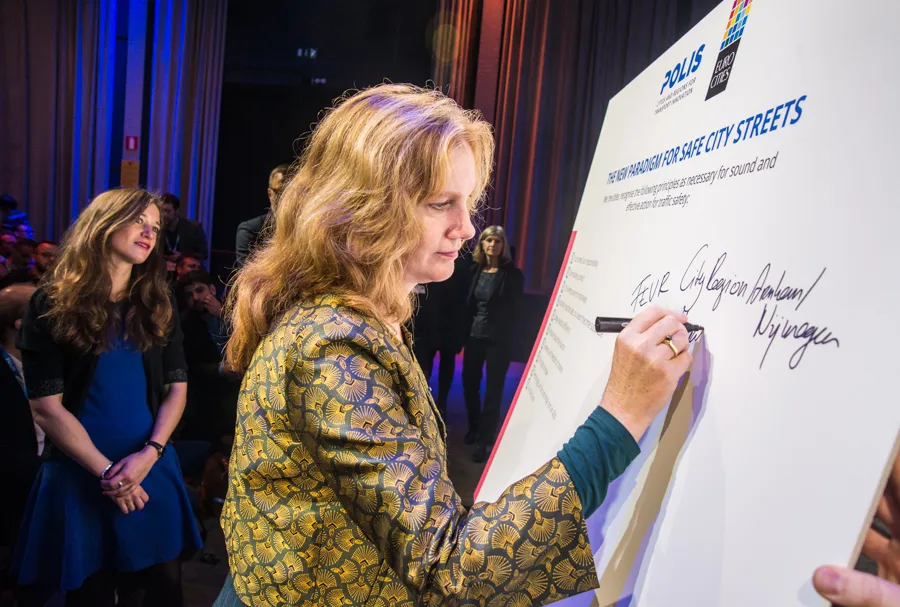
Karen Vancluysen, secretary general at Polis, said: “We hope that this declaration will inspire many more cities across Europe and beyond to not only promote walking and cycling but to also invest in making these modes safe. Death and serious injuries are not an inevitable by-product of urban mobility.”
Lilli Matson, London chief officer for safety, health and environment, recognised that investing in cycling infrastructure reduces deaths and injuries, but warns that “we need a cultural shift too”.
Suzanne Andersson, development strategist at the city of Gothenburg’s transport department, said: “Today, if we are to achieve Vision Zero, we need to go a step further and reduce single-pedestrian and single-bicycle crashes as well as other injuries including stumbling, slipping and falling. Good street design and the maintenance of areas with high density of pedestrians and cyclists must be a top priority.”
Signatories include representatives from the London, Berlin and the Bulgarian city of Sofia, as well as organisations such as Cycling Industries, Lime and Bird.
At the closing plenary session, Ireland’s capital Dublin won the Thinking Cities Award for improving safety for cyclists at intersections using smart radar detectors.
Polis says the conference brought together more than 600 urban mobility professionals for debates on how cities and regions are tackling urban mobility challenges. The next one will take place in Arnhem, Netherlands, on 2-3 December 2020.









